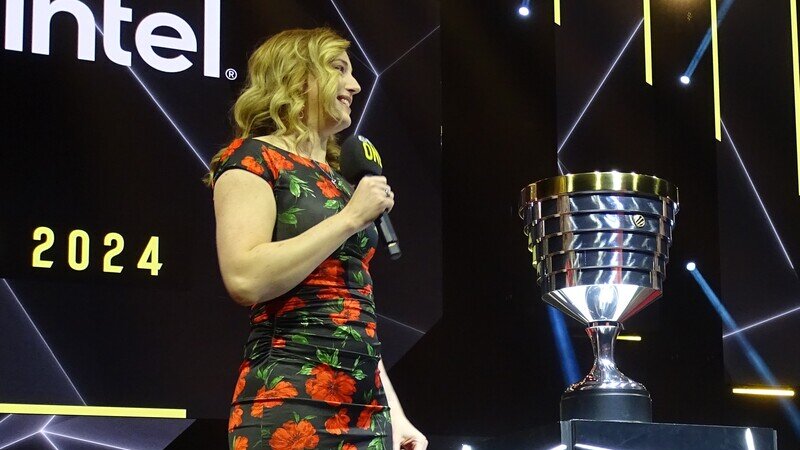During the ESL One Birmingham Major, we had the opportunity to sit down with Sheever to discuss women in esports, the year in Dota 2, and how talent are adjusting to changes in their schedules.
How are you finding Birmingham this time around?
Sheever: I am really enjoying it! I have attended the previous two Birminghams as well, and those were both located more in town. So coming here, I was a bit skeptical if it would have the same vibe.
But it has been fantastic. Birmingham has not disappointed at all. The crowd here is something special. There is a lot of excitement and energy, and everyone seems happy. It feels like a wholesome gathering of people enjoying amazing Dota.
Credit: Sophie McCarthy
Sophie: That’s great to hear. Do you feel like the vibe is different this time compared to before?
Sheever: I would say it’s very comparable. It’s been about five years since the last time, so maybe I’ve built it up in my mind. But this event has definitely exceeded expectations. It feels very positive, and I think it’s just as good, if not better, than the previous Birminghams.
Sophie: So, I wanted to touch on your role as one of the prominent figures in professional Dota. We see a lack of gender balance in Dota, but there seems to be more diversity in terms of talent. How crucial do you think this balance is for the Dota ecosystem?
Sheever: I believe it’s extremely important. When you see someone who is relatable to you in any way, it creates a sense of possibility. Gender is one obvious difference that people can identify with, and having representation in that aspect is essential. As a host, I may not be the most knowledgeable about the game, so it’s reassuring to see more women stepping up in various roles, like Ephey here at Birmingham. Having diversity in representation across all facets is valuable.
Sophie: Absolutely. While we may still be a ways off from seeing female gamers on the main stage, there are trailblazers like AXX from China who have already achieved that. How do you think having these role models impacts the community?
Sheever: Having just one role model can make a significant difference. It may start slow, but once the path is paved, progress accelerates. We’ve seen this trend in Dota talent as well. Initially, it was just me, and now we have more women entering the scene. It’s a positive and vital step towards fostering diversity in gaming.
In terms of the current Dota landscape, we’ve witnessed significant changes with the removal of the DPC and the introduction of new tournaments by PGL. How do you feel about these changes, and are you concerned about burnout?
Sheever: Initially, there was worry about job stability for talent post-DPC cancellation. The DPC provided a sense of security for many talent, and its absence brought back the uncertainty of freelance work. However, as the calendar fills up with new tournaments, there is a sense of optimism. While the talent roles are still evolving, the increased tournament frequency has been beneficial for viewers and created more engaging storylines. It’s a net positive for Dota, although the talent landscape is still in a state of flux.
Sophie: It’s interesting to see how the Dota ecosystem is adapting to these changes. On a different note, you also stream your own content in addition to hosting. What inspired you to start streaming, and how do you balance both hosting and streaming?
Sheever: Streaming has always been a passion of mine, even before hosting. I started streaming in 2011 with games like Skyrim before transitioning to Dota 2. It’s something I enjoy doing as a hobby, and it serves as a safety net for me. Streaming allows me to bridge any downtime between events and provides a creative outlet. It’s something I do for enjoyment, so I don’t feel pressured to stream constantly. It’s an activity I can turn to whenever I feel like it, and it complements my hosting work well.


